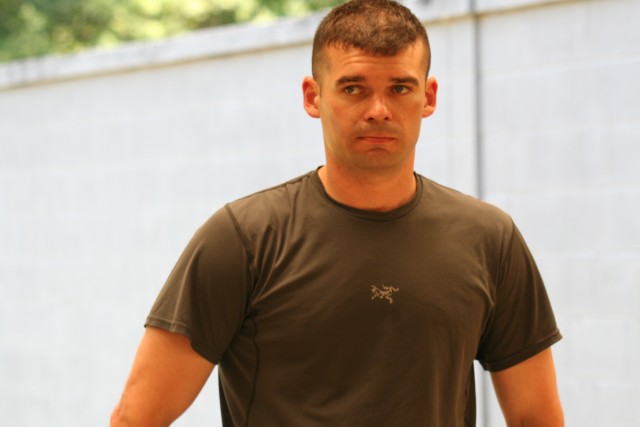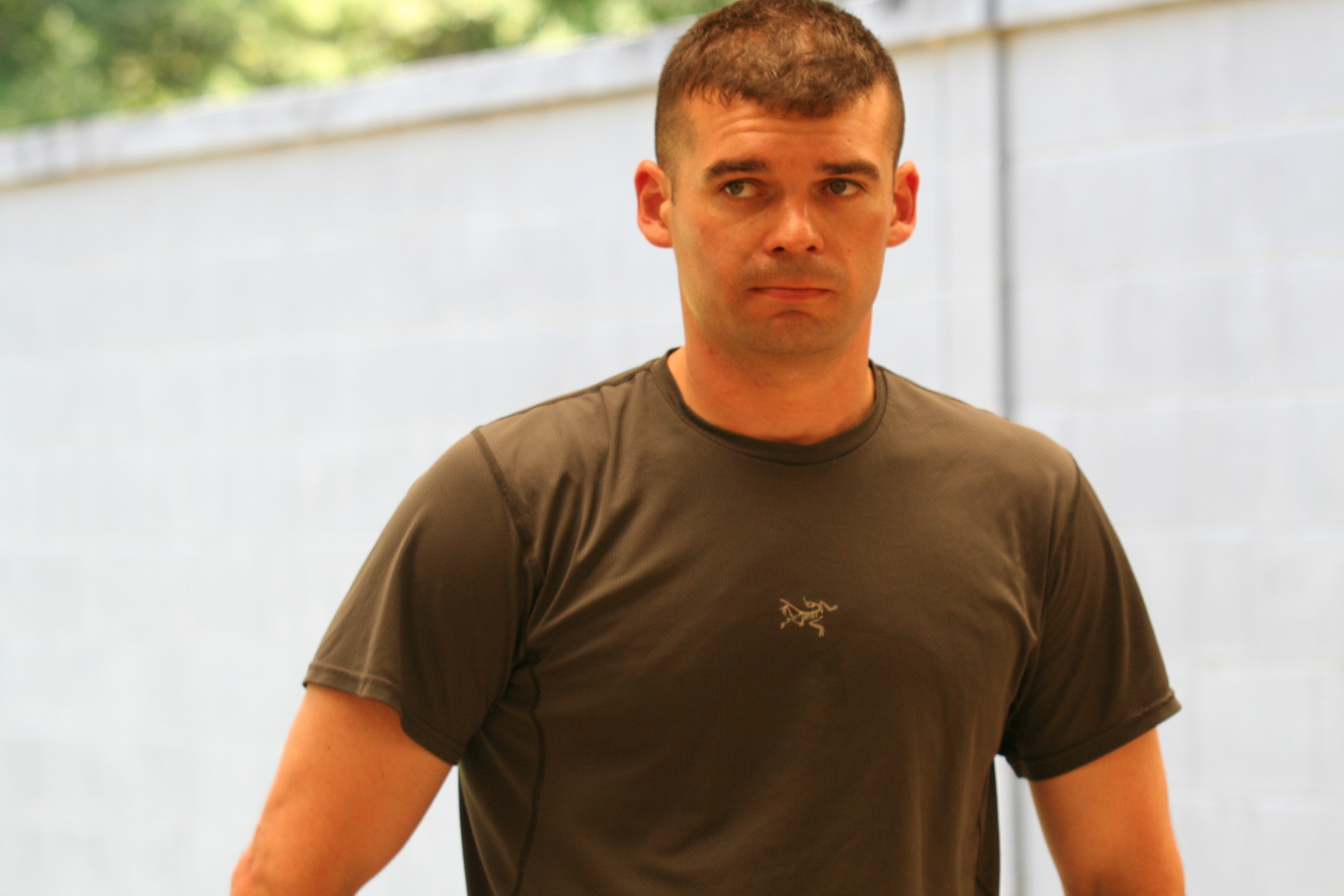On the morning of July 13, 1900, the 9th Infantry led the assault on Tientsen, China, breaking through the walls of the Forbidden City. Despite intense fighting and heavy losses, the city fell, and the unit earned the nickname, Manchus.
Now, more than 100 years later, a Manchu will again visit China bearing a weapon. He will not only take on the giants of China, but shooters from all over the world. Only this time, it won\'t be in the name of war. It will be in the name of friendly competition - the 2008 Summer Olympics.
Staff Sgt. Keith Sanderson, a weapons squad leader with 2nd Platoon, Company A, 2nd Battalion, 9th Infantry Regiment, secured his spot on the U.S. Marksmanship Team May 19 during the International Shooting Sport Federation World Cup. The three-day competition, in which eight Soldiers won a spot on the team, took place at Phillips Range at Fort Benning, Ga.
Sanderson competed in the 25-meter rapid-fire pistol event and was the only shooter to win his event all three days. However, he said he wasn't happy with his scores, which totaled 2,129.5 points, and said he would have to work harder in order to win an Olympic medal.
"When you make it on the team, you want to show everybody that you deserve to be there," Sanderson explained. "I felt the drive to do the best I could. I shot really well on the final day."
Fortunately, he didn't have to work too hard to prove that he deserved to take on the best in competitive shooting. He had already become the first American in 12 years to earn a quota slot for the Olympic Games, paving the way for the United States to even compete in the rapid fire event. Quota slots are awarded based on performance, and are given to athletes who weren't top finishers, but shot well during the 2007 World Cup. Currently, Sanderson is No. 17 in the world in rapid-fire pistol shooting.
He's not taking this accomplishment lightly.
"I earned a slot for our country," he said. "Without that, nobody would go."
"I was so happy for him when he got that slot and to see it come through for him," said Lt. Col. Michael Rauhut, Sanderson's battalion commander. Rauhut had originally helped make it possible for Sanderson to leave the unit and pursue his Olympic dreams, and has been tracking his progress ever since.
"What was interesting to me was to see him mature as a person, athlete and Soldier," Rauhut said. "He's been a leader in that (WACP) organization in helping other athletes achieve more in their own areas. He's a leader with the Manchus and with the World Class Athlete Program."
In order to get ready for the big game, Sanderson, a former U.S. Marine Corps shooter, isn't taking anything to chance. After completing the International Shooting Sport Federation World Cup in Milan, Italy, May 27, in which he finished 11th overall, he took a short one-week break, then went right back to the practice range in Colorado Springs, Colo., to work on the basics.
"My lift and first shot are my primary focus," he said. "Many competitors spent four years just on the lift. I never did baby steps. That allowed me to get to World Class quicker, but there are things I still need to work on."
Sanderson also takes special care in keeping his weapon, a .22-caliber Pardini SP1 rapid-fire pistol, clean. In a high-stress, timed event such as his, he feels the only luck involved is not having bad luck.
"A bullet that doesn't fire can cost you the entire match, so weapons maintenance is important," he said.
This is a belief that he passes on to his Soldiers when he gets the opportunity. This past Christmas, he took a break from the shooting circuit and returned to Camp Casey so he could give another Soldier a chance to go home for the holidays. During this time, in which the unit was going through Training Density Exercises, he reenlisted to stay in the Army, and also helped fix things around the unit and passed on his weapons knowledge to some of the Soldiers.
"Only a couple of my former Soldiers were still there. Many of them are in Iraq," he said. "I got emails from them saying that what I taught them really helped. That's the end purpose of all this. I'm definitely an American, but I'm also an American Soldier."
One person who was happy to see Sanderson return to the unit was Rauhut.
"He's received nothing but support from the whole chain of command," Rauhut said. "It's fulfilling for me to see a guy who expresses his desire (and acts on it). This is a win for the nation, this is a win for the Army, and it's a win for this individual."
The return to the unit also solidified Sanderson's belief in his skill. He said he feels shooting is one of the most combat-relevant sports in the Olympic Games.
"An enemy has never been killed by a softball or bowling ball; it's a bullet," he said. "I look forward to taking the lessons I learned here and applying them to the Soldiers going overseas."
But until then, Sanderson has his eye on Beijing, where he looks forward to being the first rapid-fire shooter since 1960 to take home the Olympic gold.




Social Sharing